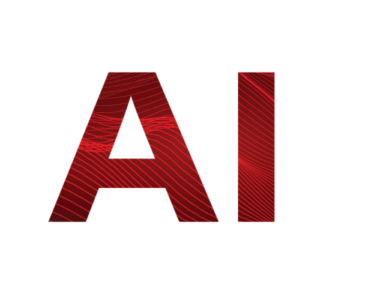Do you want to know how to secure website? We have for you some effective tips! Internet is full of harmful attacks, spam and viruses that can take over your website and cause you unplesant problems. Properly set web protection will help you to avoid these complications.

How web protection improves security of not only wordpress sites
Regular update
Regularly check in the administration whether your version of WordPress is up-to-date. Updates that WordPress releases regularly improve security and protect your site. Regular website updating is necessary these days.
The update also fixes „bugs“ that could result in reduced security or a „hole in the code“.
Secure username
The most common mistake that website users (especially when it comes to WordPress) is using usernames like „admin“ or the name of contact email on the page, etc. Choose a name that cannost be guessed and combine it with a strong password.
We also do not recommend using in the name your company’s name. We recommend adding double authentication – via e-mail, phone number or another suitable form.
Secure hosting
Choose high-quality and secure hosting, which includes an SSL certificate. In addition, make sure that the hosting is suitable for WordPress sites and provides backup. For increased security, the hosting administration should be encrypted with the HTTPS protocol.
Removal of excess content
Surplus content, such as full page backup in the wp-content/backup. Problematic could also be plugins that are not active. Most often these are older plugins or themes.
Hackers can get into codes of these plugins and lauch damaging software on your WordPress site. Therefore, we recommend you to remove all redundant files and plugins.
How to protect the web from attacks, abuse and spam? more tips!
Websites must also be protected through other security tips, such as website protection with an SSL certificate, regular backups, use of verifies plugins, distribution of admin roles and more. To learn more about these safeguards, read on.
How to improve web security
Increasing the security of your website is crucial for your protection, but also for the protection of your customers. We will explain individual steps that will significantly help you to reduce the risk of „breaking down the web“ and how to avoid spam and data misuse.

SSL certificate
SSL (Secure Sockets Layer) is a protocol that creates an encrypted conncetion between a web browser and a web server. Thanks to this, all data (eg passwords, personal data, credit card number) which are exchanged between the website and the visitor are secured.
Strong administration passwords
Using strong passwords is one of the most effective ways to secure a website. Avoid using simple passwords, such as your name or your website location, which make it easy to hack a website.
Follow these rules to create strong passwords:
- combine alphabetic and numeric characters
- use capitals, lowercase letters and symbols
- strong password should have at least 12 characters
- each password should be unique
Web protection against spam
If you plan to put an email address on your website, it will need to be secured and protected from spam bots. Spammers try to send spam information through web forms. Use CATCHA to avoid this.
Web protection against bots
Monitor what’s happening on your web regularly to spot bad bot activity as early as possible. This activity is often manifested by an unusual increase or decrease in visits due to a sudden change in IP address. Place a robots.tct file in your website directory to block the activiry of some legitimate bots. A good solution for blocking bots is also using CAPTCHA: This test automatically distringuishes a computer from a real user through it prevents a bot attack.
Secure code resistant to SQL INJECTION
SQL injection is a type of attact that attacks a database server and allows the attacker to obtain and change sensitive information. This type of attack use web vulnerabilities that allow an attacker to inject malicious code into the web. Developers can prevent these attacks by using secure and unbreakable code.
Backup
Hacker attacks, web server security breaches, malware injection and other issues can lead to the removal of all website or its parts. However, with the use of backup, your content will be archived and protected in several ways.
Regular update
Outdated software increases the risk of viruses, cyber attacks and other problems. To avoid these problems, check your website regularly for any updates or auto-update settings.
Visible website operator
Be aware of websites that hide their identity. If you do not find the operator’s name on the website, pay attention. It may be a fraudulent website that is used maily for the purpose of obtaining sensitive data. If you are a web operator, do not hide your identity. You do not want to appear untrustworthy to your visitors.
Be aware of suspicious content
Avoid websites with:
- excessive discounts,
- competitions with suspiciously high winnings,
- annoying flashing windows that are not related to the website,
- texts with a large number of grammatical errors,
- texts written in a special language.
If you come across such a website, leave it as soon as possible and do not click on anything. This will protect your website from a possible malware attack.
Verified plugins
Only install verified plugins with an official license, which have their own support in case of any problem. Choose security plugins that protect you from common attacks and malware. Avoid outdated plugins.
Web protection by encryption
An uprotected and outdated web environment provides space for cyber attacks and leak of sensitive data. If you process and store personal data of employees, data encryption is an ideal process, during which the data in a readable form becomes unreadable with the help of some encryption key. No one without the key – neither a personal or a programme is able to read the data.
Distribution of admin roles
Each team member should only have access to the data they need to do their job. This procedure ensures increased protection of information.
Web protection is important
Web protection is important. Apply these effective steps and tips will definitely improve the security of your website and reduce the risk of website downtime as well as the level of protection. Apply them to your website as soon as possible to avoid data misuse, spam and viruses. Web management and emhasis on its protection is important.
If you need help with web protection, do not hesitate to contact us.




